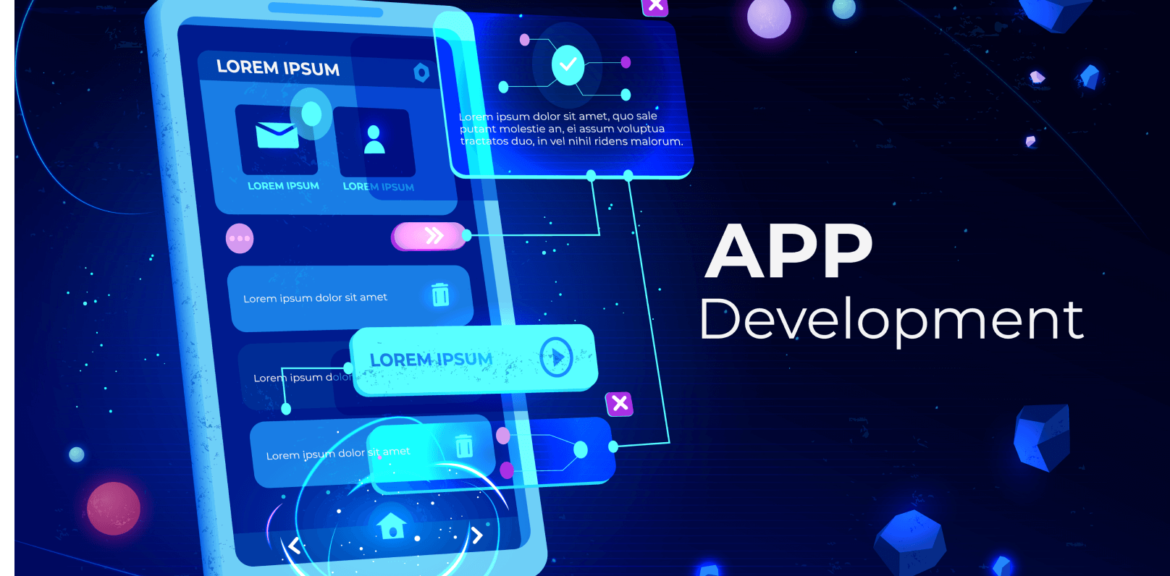Mobile app development is an ever-evolving landscape, driven by technological advancements, changing user expectations, and the constant pursuit of innovation. As we look ahead, several trends are set to shape the future of mobile app development, influencing the way applications are built, deployed, and experienced by users. In this article, we explore key trends that developers and businesses should keep an eye on for the future of mobile app development.
1. 5G Technology: The rollout of 5G networks is poised to revolutionize mobile app development. With significantly faster speeds and lower latency, 5G enables the seamless integration of high-quality video, augmented reality (AR), and virtual reality (VR) experiences. Mobile apps can leverage 5G to deliver real-time, immersive content, unlocking new possibilities for industries such as gaming, healthcare, and education.
2. Progressive Web Apps (PWAs): Progressive Web Apps continue to gain traction as a hybrid solution between websites and native mobile apps. PWAs offer the benefits of both worlds, providing offline functionality, push notifications, and quick loading times. As they eliminate the need for installation and are accessible through web browsers, PWAs enhance user convenience and simplify the development and maintenance process for developers.
3. Cross-Platform Development: Cross-platform development frameworks like React Native and Flutter are becoming increasingly popular. These frameworks allow developers to write code once and deploy it across multiple platforms, saving time and resources. As the demand for apps on both iOS and Android remains high, cross-platform development provides a cost-effective solution without compromising on performance.
4. Artificial Intelligence (AI) and Machine Learning (ML): AI and ML continue to be at the forefront of technological advancements in mobile app development. Integrating AI-driven features such as chatbots, personalized recommendations, and predictive analytics enhances user experiences. As AI algorithms become more sophisticated, mobile apps will be able to offer highly tailored and intelligent interactions based on user behavior and preferences.
5. Internet of Things (IoT) Integration: The proliferation of IoT devices is influencing mobile app development, creating opportunities for seamless integration. Mobile apps can act as control hubs for smart homes, health monitoring devices, and connected vehicles. The ability to communicate with and control IoT devices through mobile applications is expected to become more prevalent, providing users with centralized control and monitoring capabilities.
6. Enhanced Security Measures: As cyber threats continue to evolve, ensuring the security of mobile apps is paramount. Future app development will prioritize robust security measures, including advanced encryption, biometric authentication, and secure APIs. Protecting user data and privacy will be a top priority, and developers will implement measures to safeguard against emerging security challenges.
Also Read: The Art of Crafting a Stunning Website: A Guide to Web Development
7. Augmented Reality (AR) and Virtual Reality (VR): AR and VR technologies are evolving beyond gaming and entertainment, finding applications in various industries. From interactive shopping experiences to virtual tours and training simulations, AR and VR are reshaping the way users engage with mobile apps. Developers will explore innovative ways to incorporate these technologies, creating immersive and engaging experiences.
8. Blockchain Integration: Blockchain technology is making inroads into mobile app development, particularly in enhancing security and transparency. Blockchain can be leveraged for secure transactions, decentralized identity verification, and ensuring the integrity of data within mobile apps. As the technology matures, more apps are likely to explore the benefits of blockchain integration.
9. Enhanced User Personalization: User personalization will take center stage in the future of mobile app development. Apps will leverage AI algorithms to analyze user behavior, preferences, and contextual data to deliver highly personalized experiences. From customized content recommendations to tailored user interfaces, personalization will be a key factor in retaining user engagement.
10. Edge Computing: Edge computing involves processing data closer to the source of generation, reducing latency and improving response times. This trend will impact mobile app development by enabling faster data processing, particularly for applications that require real-time interactions. Edge computing ensures a more efficient and responsive experience for users.
In conclusion, the future of mobile app development is characterized by a convergence of technologies that aim to deliver more immersive, secure, and personalized experiences. Keeping an eye on these trends will be crucial for developers and businesses seeking to stay ahead in a rapidly evolving digital landscape. Embracing these trends will not only meet current user expectations but also position mobile apps for success in the years to come.

